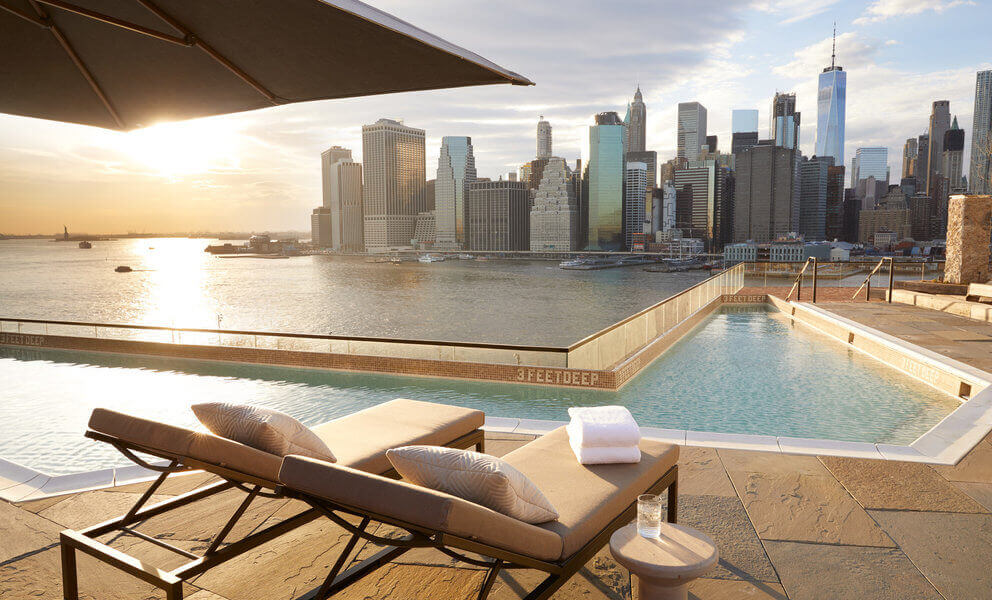
Luxury properties all struggle with a common dilemma: How to create promotions to fill room nights and need periods that don’t work against the property’s status as a luxury brand?
NB: This is an article from Tambourine
On the one hand, you may feel that running too many price-driven special offers and discounts in a row will begin to erode the brand’s carefully crafted and curated identity. On the other hand, those need periods need to be filled.
It’s tempting to solve this problem in one of two ways:
- Run the same safe promotion every month.
- Choose not to run any promotion at all.
Of course, neither solution is ideal.
Running the same stale promotion every month can quickly become ineffective, but by choosing not to run any promotion at all, you could be missing out on low-hanging fruit.
Below, we’ve compiled four smart strategies you can use to push need periods while increasing the brand’s luxury status, instead of detracting from it.
1. Partner with like-minded brands.
There are myriad opportunities to devise package promotions that pair your property with other iconic brands in your market, such as restaurants, wineries, tourist attractions, and even other synergistic hotels.
For example, the St. Regis San Francisco teamed up with the boutique Farmhouse Inn resort in Napa Valley, creating an exclusive “City & Sonoma” package consisting of one ultra-luxurious night in the city, and one romantic night in wine country.
In this scenario, both brands are well represented and both benefit from the promotion by recognizing the commonalities between their customers and devising a promotion that specifically speaks to them.
You can also partner with unique experience providers in your local market to formulate bundled offers that entice luxury customers. The Loews Coronado Bay Resort in San Diego, for example, offers a one-night stay package that includes surfing lessons for guests’ dogs (conducted by local experts), as well as a pair of canine board shorts.
2. Create conversation starters.
Some offers can exist purely to attract attention to your hotel. It doesn’t matter if the promotions are too expensive or hyper-targeted to appeal to the average customer; if it’s something cool, unique and/or exclusive, this marketing technique will get potential guests talking about your brand. If someone actually books it, consider that a bonus!
For example, the Godfrey Hotel Chicago recently offered a romantic Valentine’s Day evening that included a private helicopter tour of the city with a local partner. Even if the offer is rarely booked, it gives the hotel a great story angle that aligns perfectly with the brand.
Similarly, the Sonora Resort in British Columbia takes that helicopter concept even further, offering guests a private tour of the coast that culminates with a gourmet picnic on a remote mountaintop.
Other offers can tantalize guests with “bucket list” experiences that appeal to specific customer profiles. Take the Acqualina Resort in Miami, which courts car aficionados with complimentary use of a Rolls-Royce Ghost when guests book the hotel’s Grand Deluxe Three-Bedroom Oceanfront Suite for three or more nights.
3. Disguise need periods in seasonal messaging.
Sometimes even the best hotels in a market suffer from a degree of seasonality. But that doesn’t mean you need to beg your customers to book during those down times.
There are creative ways to fill rooms by hyping your market’s seasonal offerings, turning a potentially negative message (your hotel is empty in October) into a positive (fall is a great time to visit).
Invite travelers to enjoy a curated a list of seasonal events (your city’s key demand generators) and position your hotel at the center of them.
4. Get more targeted.
Finely tuned targeting of your promotions offers multiple benefits. In addition to being simply more effective than broad, blanket campaigns, a targeted approach lends itself well to creativity and flexibility.
When you’re targeted with your advertising, you can let your hair down a bit and have some fun with highly specific offers because you’re in full control of who sees the offer.
Facebook targeting and programmatic advertising can be key methods to this end, as well as targeted email campaigns informed by your CRM.
Again, this strategy is most effective when you build deep customer profiles layered with data, so you can pair the right message with its ideal customer.
For example, when creating anniversary messaging, try only targeting couples with upcoming anniversaries.
Or, you can deploy promotions to guests who stayed during similar times last year, inviting them back.
Why risk your hotel’s luxury identity with a price-driven offer when a well-crafted, highly targeted promotion can fill rooms and enhance its image?




